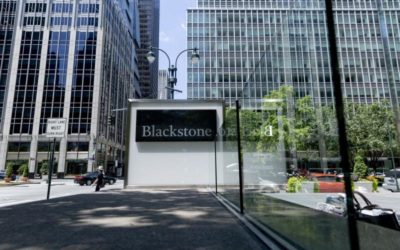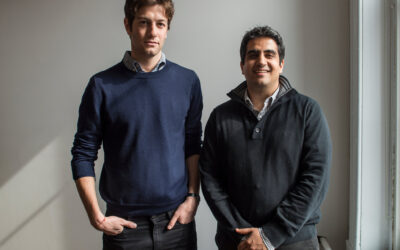In Britain, you either live near a Pizza Hut or a Pizza Express. But the pandemic may change that forever as the two casual dining rivals are shutting outlets and slashing jobs to survive the crisis.
They are not alone.
More than 22,000 restaurant jobs have been axed this year because of the pandemic – almost double the 11,280 job losses reported during the whole of 2019, according to the Centre for Retail Research (CRR).
Several victims of the pandemic are private equity-owned restaurant empires, which have feasted on the sector for years.
In the past few months, Pizza Express announced its investor, the Chinese PE firm Hony Capital, had agreed to a restructuring deal, resulting in 73 stores closures and 1,100 job losses. French cuisine chain Bistrot Pierre, formerly backed by Livingbridge, was sold out of administration in a pre-pack deal; and struggling group Byron Burger, which was owned by Three Hills Capital Partners, was sold to Calverton UK in July.
Those that did survive the summer bet on good weather, outdoor eating, a handful of tourists and the UK government’s Eat Out to Help Out scheme as the lockdown was lifted sporadically.
But winter is coming.
Nearly 1,500 restaurants in the country collapsed up until August this year, according to the CRR. This represented a 59.1% increase in the total 922 sites closed during the same period in 2019.
These figures are expected to get worse by December as both customers and investors stay away from restaurants.
“The current situation is artificial,” Martin Williams, CEO of the City favourite Gaucho and M Restaurant chain, told Private Equity News. “At the end of the month, many restaurants will face the hangover of six months historic rent due, three months future rent to pay and the safety net of furlough support removed. Fallout is inevitable.”
The government’s new virus restriction limiting gatherings to six people, that comes into force today, 14 September, is also a recipe for disaster for both restaurants and their private equity backers.
“This will inevitably take time, and the recovery may not have a straight trajectory,” admits Ian Wood, partner at London-based private equity firm Epiris that acquired
Bella Italia, Café Rouge and Las Iguanas chains in July.
Both restaurateurs and their loyal customers are in a pickle. Chilly weather means fewer diners will be willing to eat outside.
Meanwhile, health experts have warned against sitting inside restaurants over risks of contracting the virus.
“If you’re going to go to a restaurant, try as best as you can to have outdoor seating that is properly spaced between the tables.” Anthony Fauci, the face of America’s fight against coronavirus, told PEN’s sister publication MarketWatch.
Fret-A-Manger
The coronavirus crisis turned cities into ghost towns as thousands of people worked from home. Pret A Manger, which relied on time-pressed office goers grabbing quick coffees and sandwiches, lost thousands of customers overnight. It had to cull nearly 2,900 jobs, a third of its workforce, while also reducing the number of outlets in the UK from 400 to 367.
The cheery coffee and sandwich chain, founded in 1986, came to define Britain’s lunch in the 2010s. The past decade has seen Pret build on this growth and the business, now owned by an investment fund run by Germany’s billionaire Reimann family, expanded to the US, Europe and Asia.
When the pandemic hit, the chain had to reinvent itself again. It has now started to adapt by delivering hot drinks, dinners and introducing a coffee subscription in the UK to survive the pandemic.
“We don’t believe we can simply wait for the world to go back to what it once was,” a Pret spokesperson told PEN. “That’s why our teams are absolutely focused on adapting and transforming our business to succeed in this new retail reality.”
Private equity veteran Jon Moulton predicts more chef hats will be hung by Christmas.
“[Empty] city centres are a real problem as long as people work from home. Hard to see any improvement pre a vaccine. Meanwhile, cash woes and a potential second wave remain a key challenge for restaurants,” the boss of British PE firm Better Capital, said.
The pandemic also forced Burger King, backed by Bridgepoint in the UK, to launch new restaurant designs with more space for delivery pickups and additional drive-thru lanes to ensure customers’ safety.
Investors will have to stump up cash for a restaurant renaissance to survive the winter and the pandemic, according to Simon Woodroffe, who founded the Yo Sushi chain in 1997.
The Japanese restaurant was ahead of its times as it served colour-coded plates of Japanese food from snaking conveyor belts.
“The winners will be those who put staff and customers above everything else”, he told PEN, adding that “automated kitchens” and “robot” restaurant staff are the future.
Private equity to the rescue?
From 2014 to 2019, private equity firms have spent £10.4bn on 132 deals in the restaurant and bars sector in the UK, according to data from PitchBook.
But battered by liquidity issues and high rent costs, the once hungry investors are keeping their powder dry.
Gaucho CEO Williams does not recommend private equity giants snapping up restaurants in the run up to the winter.
“In a year there will be opportunity for PE to back new innovative restaurateurs… when you see good brands simply run out of working capital,” he said.
Meanwhile, Moulton says only “low prices and sensible rents” will make private equity giants consider rescuing failing chains. Some market insiders warn that the pandemic combined with industry’s practices, which usually includes takeovers heavy on debt, are the reason for big failures seen recently.
A partner at a European mid-market buyout firm, who asked not to be identified, said one of its portfolio companies in the hospitality sector only managed to survive the pandemic because it was an “unusual” investment, without any additional debt.
“You see the balance sheets of restaurants and other leisure businesses with too much debt, too much risk. Private equity will need to reconsider its use of leverage after the pandemic,” he argued.
“Why should private equity investors consider saving the restaurant sector?”, asks Cameron Gunn, a senior partner at ReSolve, which has recently been hired to restructure High Street businesses, such as British menswear T.M. Lewin.
“They [private equity firms] are sitting on an enormous amount of cash right now and have the means to do so, but why should they get involved before they get clarity that consumers will actually return and spend money, in the near term?”
“Many, I think, will simply adopt a wait and see approach, which means a lot of restaurants will not survive as they will not be able to raise the necessary cash to stay afloat,” Gunn added.
Restaurants will change
Some are more optimistic.
Ian Wood from Epiris, that once owned TGI Fridays, said: “We are confident that the consumer behaviours that lead people to eat in restaurants will resume.”
With so many restaurants struggling, distressed assets can be a juicy opportunity for private equity firms looking into a long-term returns perspective, according to Luke Davis, CEO of London-based buyout firm IW Capital, which backs UK-wide pub chains Brewhouse & Kitchen and Inglenook Inns.
“Now could be a fantastic opportunity to support businesses in this sector at a time when they need support the most and with the largest opportunity for growth,” said Davis.
“Most [firms] have been proactive in restructuring, repositioning and readying their businesses. It’s now down to the consumer,” said Nam Quach, leader of the consumer, leisure & retail team at investment bank DC Advisory.
How many are going back to work and how confident will they be in “discretionary spend” that will decide the future of restaurants.
So, which restaurants are going to make it through the winter?
“The talented, driven and ambitious members of the restaurant sector will drive a new landscape in restauranteering. There will be much opportunity with less competition.
“Customers want to see new and exciting things, and in my 1960s’ vernacular have their minds blown with food, service and atmosphere,” Yo Sushi’s Woodroffe said.
Source: Private Equity News
By Elisângela Mendonça
Can’t stop reading? Read more
US Pipeline Operator ONEOK Inks Two Deals for $5.9 Billion
US pipeline operator ONEOK Inc. agreed to buy a Permian Basin rival and a controlling stake in...
Blackstone Is Said to Seek A$5.5 Billion Loan for AirTrunk Bid
Private equity firm Blackstone Inc. is in discussions with banks for a five-year loan of about...
Thrive Capital to lead multi-billion dollar OpenAI investment round at $100bn valuation
OpenAI, the company behind the popular AI tool ChatGPT, is in advanced talks to secure several...




